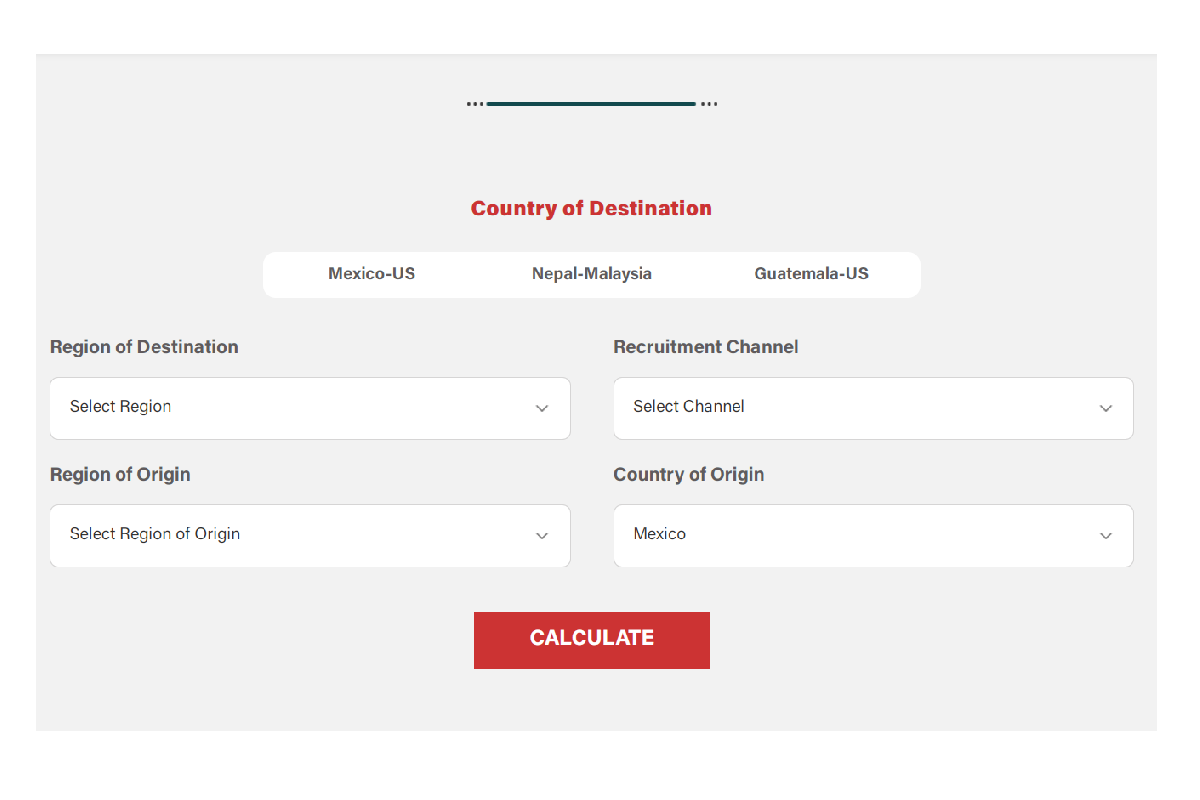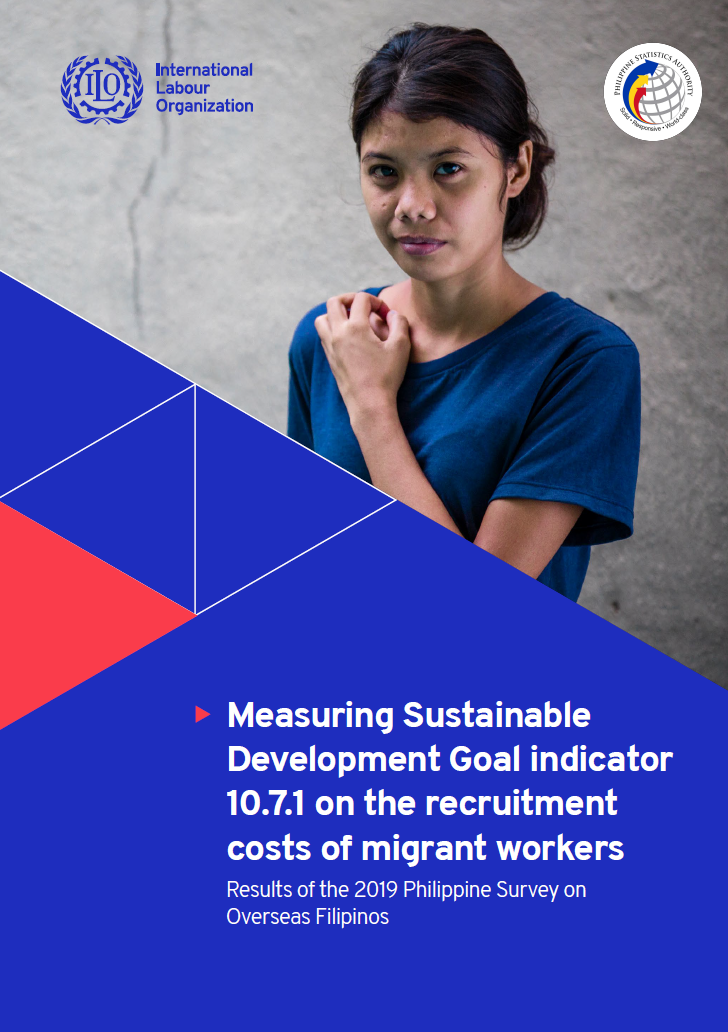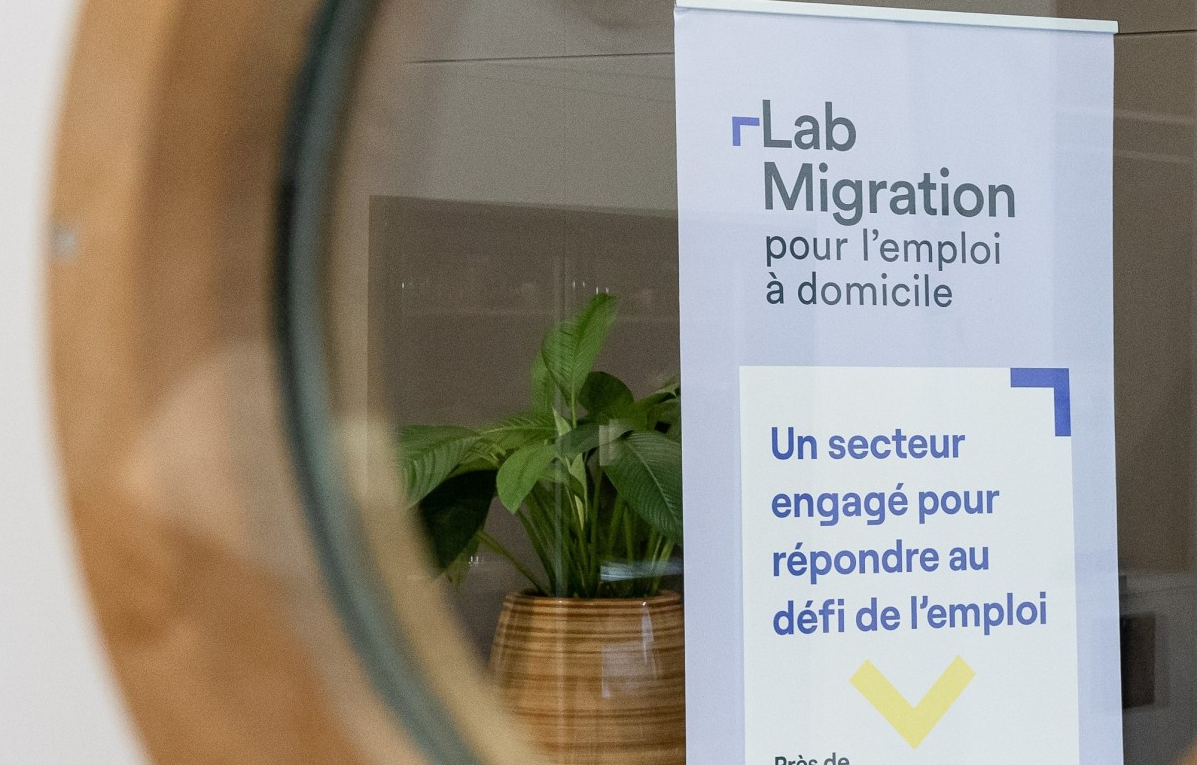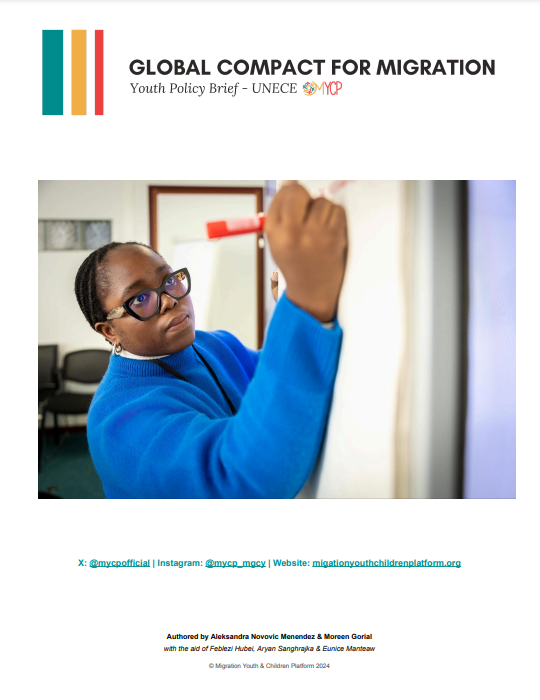6 - Recruitment and decent work
6 - Recruitment and decent work

Facilitate fair and ethical recruitment and safeguard conditions that ensure decent work
The Global Compact for Safe, Orderly and Regular Migration (GCM) sets out 23 objectives. Each objective consists of a commitment, followed by relevant policy instruments and best practices that are intended to support its implementation. This page provides resources for objective 6 (Facilitate fair and ethical recruitment and safeguard conditions that ensure decent work):
“22. We commit to review existing recruitment mechanisms to guarantee that they are fair and ethical, and to protect all migrant workers against all forms of exploitation and abuse in order to guarantee decent work and maximize the socioeconomic contributions of migrants in both their countries of origin and destination.
To realize this commitment, we will draw from the following actions:
(a) Promote signature and ratification of, accession to and implementation of relevant international instruments related to international labour migration, labour rights, decent work and forced labour;
(b) Build upon the work of existing bilateral, subregional and regional platforms that have overcome obstacles and identified best practices in labour mobility, by facilitating cross-regional dialogue to share this knowledge, and to promote full respect for the human and labour rights of migrant workers at all skills levels, including migrant domestic workers;
(c) Improve regulations on public and private recruitment agencies in order to align them with international guidelines and best practices, and prohibit recruiters and employers from charging or shifting recruitment fees or related costs to migrant workers in order to prevent debt bondage, exploitation and forced labour, including by establishing mandatory, enforceable mechanisms for effective regulation and monitoring of the recruitment industry;
(d) Establish partnerships with all relevant stakeholders, including employers, migrant workers’ organizations and trade unions, to ensure that migrant workers are provided with written contracts and are made aware of the provisions therein, the regulations relating to international labour recruitment and employment in the country of destination, and their rights and obligations, as we ll as of how to access effective complaint and redress mechanisms, in a language they understand;
(e) Enact and implement national laws that sanction human and labour rights violations, especially in cases of forced and child labour, and cooperate with the private sector, including employers, recruiters, subcontractors and suppliers, to build partnerships that promote conditions for decent work, prevent abuse and exploitation, and ensure that the roles and responsibilities within the recruitment and employment processes are clearly outlined, thereby enhancing supply chain transparency;
(f) Strengthen the enforcement of fair and ethical recruitment and decent work norms and policies by enhancing the abilities of labour inspectors and other authorities to better monitor recruiters, employers and service providers in all sectors, ensuring that international human rights and labour law is observed to prevent all forms of exploitation, slavery, servitude and forced, compulsory or child labour;
(g) Develop and strengthen labour migration and fair and ethical recruitment processes that allow migrants to change employers and modify the conditions or length of their stay with minimal administrative burden, while promoting greater opportunities for decent work and respect for international human rights and labour law;
(h) Take measures that prohibit the confiscation or non-consensual retention of work contracts and travel or identity documents from migrants, in order to prevent abuse, all forms of exploitation, forced, compulsory and child labour, extortion and other situations of dependency, and to allow migrants to fully exercise their human rights;
(i) Provide migrant workers engaged in remunerated and contractual labour with the same labour rights and protections extended to all workers in the respective sector, such as the rights to just and favourable conditions of work, to equal pay for work of equal value, to freedom of peaceful assembly and association, and to the highest attainable standard of physical and mental health, including through wage protection mechanisms, social dialogue and membership in trade unions;
(j) Ensure that migrants working in the informal economy have safe access to effective reporting, complaint and redress mechanisms in cases of exploitation, abuse or violations of their rights in the workplace, in a manner that does not exacerbate vulnerabilities of migrants who denounce such incidents and allows them to participate in respective legal proceedings whether in the country of origin or the country of destination;
(k) Review relevant national labour laws, employment policies and programmes to ensure that they include considerations of the specific needs and contributions of women migrant workers, especially in domestic work and lower skilled occupations, and adopt specific measures to prevent, report, address and provide effective remedy for all forms of exploitation and abuse, including sexual and gender-based violence, as a basis to promote gender-responsive labour mobility policies;
(l) Develop and improve national policies and programmes relating to international labour mobility, including by taking into consideration relevant recommendations of the ILO General Principles and Operational Guidelines for Fair Recruitment, the United Nations Guiding Principles on Business and Human Rights 21 and the IOM International Recruitment Integrity System (IRIS).”
(GCM, 2018: para. 22)
Labor migration has the potential to make a positive impact on the livelihoods of migrant workers, their families, as well as the countries of origin and destination. However, the outcomes depend on several factors such as the existence of legal and social mechanisms that ensure the protection of migrant worker rights. Especially for low-skilled labor migration, there are significant concerns about their vulnerability to exploitation and high recruitment fees. There are several instruments at the global, regional, and national level that are aimed at a human rights-led approach to governing labor migration, such as the International Convention on the Protection of the Rights of All Migrant Workers and Members of Their Families and the Decent Work Agenda from the International Labour Organization. There are also active civil society networks that campaign for reductions in recruitment fees and increased protections for migrant workers. For this objective, particular attention needs to be paid to the situation facing children and women migrant workers.
The Global Compact for Migration (GCM) report is available in AR, ZH, EN, FR, RU, ES.
Hub content relevant to "6 - Recruitment and decent work"
 Practice Repository |
Practice Repository | Resource |
Resource | Resource |
Resource | Resource |
Resource | Practice Repository |
Practice Repository | Practice Repository |
Practice Repository | Practice Repository |
Practice Repository | Resource |
Resource | Resource |
Resource | Practice Repository |
Practice Repository | Practice Repository |
Practice Repository | Practice Repository |
Practice Repository |
Pagination
*References to Kosovo shall be understood to be in the context of United Nations Security Council resolution 1244 (1999).
Newsletter
Subscribe to our newsletter.